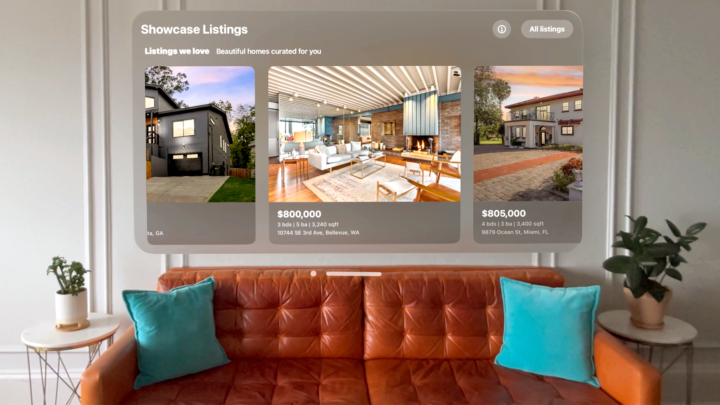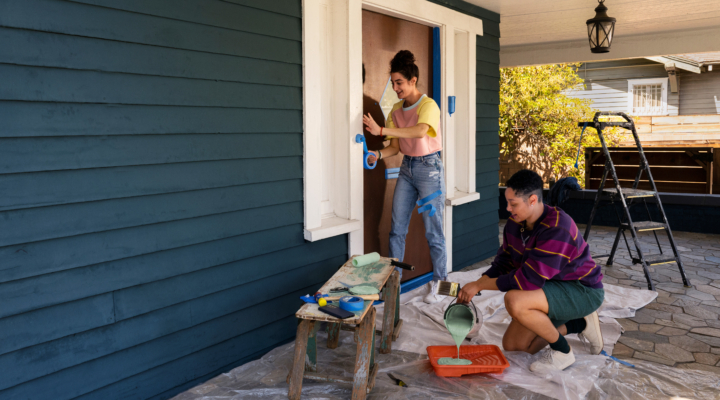How to Price Your Home to Sell
Start with your Zestimate to give yourself a ballpark price, but don’t stop there.

Deciding to sell your home is a big deal, and coming to a consensus on the list price can be the first big hurdle. Whether you’re working with an agent or listing on your own, it can be a challenge to learn how to price a house. If you’re asking yourself “How much should I sell my house for?”, this guide will help you through the process.
1. Start with your Zestimate
Zillow's Zestimate is the estimated market value for your individual home, computed daily based on millions of public and user-submitted data points, and it's a great starting point for your pricing research. You can find your Zestimate simply by searching your address on our website. From there, claim your home and review your home facts to make sure they're updated and correct. Adding details to your listing can influence your Zestimate and show potential buyers the most accurate value for your home.
2. Review comparables of recently sold homes
What is a Comparative Market Analysis (CMA)?
If you’re working with a real estate agent, they’ll be providing you with a CMA, which is a compilation of recent sales from your area. It takes into consideration home details, days on the market, and final sale price.
If you’re selling your home on your own, you can definitely do your own research online and get a good idea of your home’s value. But, don’t be afraid to contact a few real estate agents to request a CMA. They’re used to providing comps to potential clients, and they may not even need to step foot in your home. You might also consider hiring an independent appraiser. For a few hundred dollars, they can give you a fair market value for your home.
If you do search for comps on your own, note that comparable properties should:
- Be within ¼ to ½ of a mile from your home.
- Have been listed within the last 3 months.
- Be roughly the same age as your property.
- Have square footage within 10 percent of yours. So, if your home is 1,500 square feet, you should look at homes between 1,350 and 1,650 square feet.
3. Learn from other sellers’ mistakes
Review expired listings from your area to gain insights on pricing your home to sell. Compare original list prices of recently sold homes with their final sale prices. Did it take many price cuts to get a sale? Perhaps it was overpriced to begin with?
4. Don’t let your asking price lump you in with the competition
Ever heard of price banding? It’s the practice of looking over current inventory in your neighborhood and finding a less crowded price point. Prices tend to get bunched up as sellers try to price their homes competitively. For example, if there are four homes in your neighborhood priced between $274,000 and $276,000, and the next set of homes start at $290,000 and up, you should take advantage of the wide open $280,000 price band.
5. Avoid obscure and century pricing
Whether at the grocery store or in a home sale, there’s a proven psychology that items priced just under a “century” number (meaning a nice, round number) are more attractive to buyers — think $9.95 instead of $10, $19.99 instead of $20, and so on. For whatever reason, your $299,999 home might seem more approachable than if it were priced at $300,000. However, pricing a house at a random and obscure number (like $123,456) is distracting to buyers and gives a bad impression of you, the seller.
6. Price for online search ranges
Consider the price range your home will fall into on popular online real estate websites. Most buyers have a price range they are considering or can afford. A buyer looking at homes in the $280,000 to $300,000 range will likely not see your home if it’s listed at $305,000. But, if you choose a home listing price of $299,999, it’ll show up in their search results — and they just might end up being your buyer.
7. Put yourself in the buyer’s shoes
It’s hard to put aside your emotional attachment to your home, but when selling your home, it’s a must. Look around at what else is selling around the same price. Objectively, are these homes worth more or less than yours?
8. A note on pricing for a bidding war
There’s a difference between “How much can I list my house for?” and “How much can I sell my house for?” Sometimes, especially in big seller’s markets, sellers list their homes for an attractively low asking price, in hopes of driving up the eventual sales price with a bidding war.
While this strategy can work, there’s always a risk of the financing falling through on your highest-priced offer, especially if your home doesn’t end up appraising for the offered amount. When that happens, you’ve jeopardized lower offers, and potential buyers may wonder if there’s a flaw in your home that made your deal fall through.
When evaluating offers, always look carefully at all aspects of each offer before deciding which to accept — there are more factors than just the price offered.
9. Don’t hesitate to cut the price after listing
Even with the best research, sometimes you’ll come to the conclusion that you’ve listed too high. Luckily, it’s not unusual to see price cuts. In fact, according to the Zillow Group Consumer Housing Trends Report, 64 percent of sellers lower their price at least once. The key is to recognize quickly that you’ve overpriced, and make an accurate adjustment.
Avoid the temptation of making a few little pricing tweaks over time. Older listings simply aren’t as attractive to buyers, and your goal is to sell quickly. It’s always better to make one big price correction up front.
10. Get a second (expert) opinion
Agents are pros when it comes to pricing properties and have their finger on the pulse of your local market. They understand current buying trends and can provide insight into how your home compares to others for sale nearby. It might be worth enlisting an agent's help if you're having trouble finding the right price point. Don't have an agent? Zillow's agent directory allows you to search for real estate experts in your area and includes reviews and other insights to help you compare and choose the agent who is right for you.
How to price your home for the current housing market
To learn how to sell your house for the best price, keep in mind the following factors:
- Seasonality: In the majority of the country, spring is considered the best time to sell a home — the weather is improving and families want to move during the summer break from school. Fall is considered second-best, as most people are back in town from summer vacations. Winter is the slowest season, not only because of bad weather, but because people are busy with the holiday season. Of course, the very best time to sell varies a bit city by city.
- Inventory: In Economics 101, we were taught the basics of supply and demand, and it definitely applies to real estate. If your home is one of 20 for sale in your neighborhood, you’ll have a hard time getting the price you want, since supply outweighs demand. But, if it’s a hot market and you’re one of just a few homes available in your area, you may be able to get your asking price, or even higher.
- Buyer’s market: In a buyer’s market, you need to be priced slightly lower than the competition, because there are more homes for sale than there are buyers in the market.
- Seller’s market: In a seller’s market, you can add about 10 percent to a comparable sale, since inventory is limited and buyers are competing for fewer homes.
- Neutral market: In a neutral real estate market, there’s an even balance between the number of buyers and the number of homes for sale. In this market, you’ll want to keep an eye on nearby comparables to make sure your pricing is similar.
Tags
Written by
Meredith Arthur
11.25.2019
Ready for a new address?
Get an instant cash offer or list with a local partner agent.
Explore selling options


